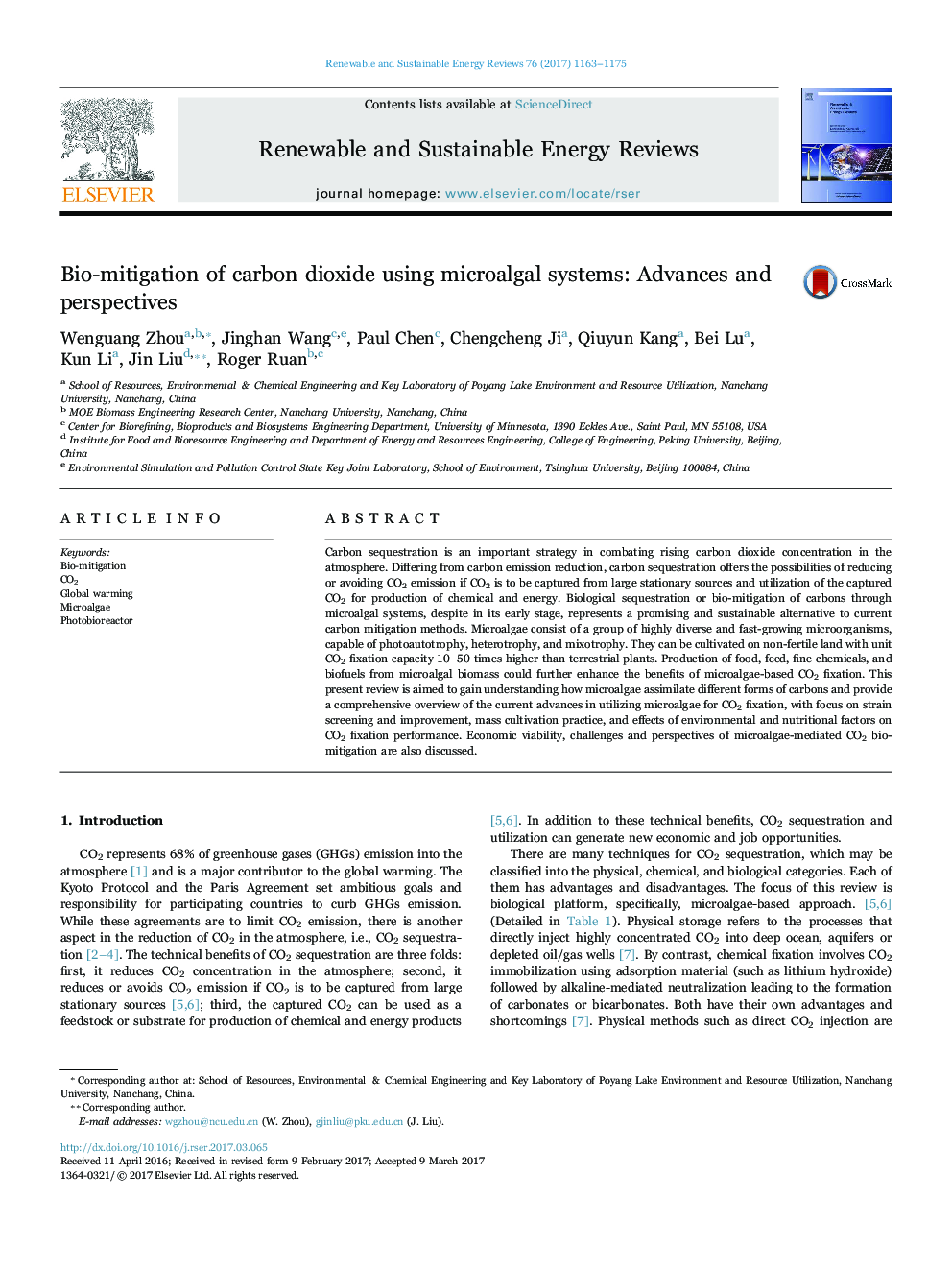| کد مقاله | کد نشریه | سال انتشار | مقاله انگلیسی | نسخه تمام متن |
|---|---|---|---|---|
| 5482219 | 1522310 | 2017 | 13 صفحه PDF | دانلود رایگان |
عنوان انگلیسی مقاله ISI
Bio-mitigation of carbon dioxide using microalgal systems: Advances and perspectives
ترجمه فارسی عنوان
کاهش بیولوژیکی دی اکسید کربن با استفاده از سیستم های میکروالگل: پیشرفت و چشم انداز
دانلود مقاله + سفارش ترجمه
دانلود مقاله ISI انگلیسی
رایگان برای ایرانیان
کلمات کلیدی
موضوعات مرتبط
مهندسی و علوم پایه
مهندسی انرژی
انرژی های تجدید پذیر، توسعه پایدار و محیط زیست
چکیده انگلیسی
Carbon sequestration is an important strategy in combating rising carbon dioxide concentration in the atmosphere. Differing from carbon emission reduction, carbon sequestration offers the possibilities of reducing or avoiding CO2 emission if CO2 is to be captured from large stationary sources and utilization of the captured CO2 for production of chemical and energy. Biological sequestration or bio-mitigation of carbons through microalgal systems, despite in its early stage, represents a promising and sustainable alternative to current carbon mitigation methods. Microalgae consist of a group of highly diverse and fast-growing microorganisms, capable of photoautotrophy, heterotrophy, and mixotrophy. They can be cultivated on non-fertile land with unit CO2 fixation capacity 10-50 times higher than terrestrial plants. Production of food, feed, fine chemicals, and biofuels from microalgal biomass could further enhance the benefits of microalgae-based CO2 fixation. This present review is aimed to gain understanding how microalgae assimilate different forms of carbons and provide a comprehensive overview of the current advances in utilizing microalgae for CO2 fixation, with focus on strain screening and improvement, mass cultivation practice, and effects of environmental and nutritional factors on CO2 fixation performance. Economic viability, challenges and perspectives of microalgae-mediated CO2 bio-mitigation are also discussed.
ناشر
Database: Elsevier - ScienceDirect (ساینس دایرکت)
Journal: Renewable and Sustainable Energy Reviews - Volume 76, September 2017, Pages 1163-1175
Journal: Renewable and Sustainable Energy Reviews - Volume 76, September 2017, Pages 1163-1175
نویسندگان
Wenguang Zhou, Jinghan Wang, Paul Chen, Chengcheng Ji, Qiuyun Kang, Bei Lu, Kun Li, Jin Liu, Roger Ruan,
